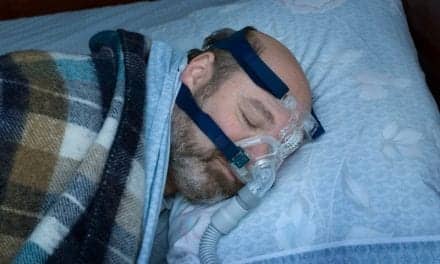Getting less sleep decreases healthy vascular function and impairs breathing control, [removed]according to research presented[/removed] at last week’s Experimental Biology 2013 meeting.
Researchers at the the University of Birmingham asked participants to reduce sleep length over two consecutive nights to mimic the partial sleep deprivation many people experience in daily life.
Participants got eight hours of sleep for the first two nights of the study, decreasing that amount to four hours on next three consecutive nights. After just two nights of restricted sleep, researchers found a significant reduction in vascular function. However, after the third night of sleep restriction, vascular function returned to baseline. Investigators believe this to be a possible adaptive response to acute sleep loss.
In separate testing, researchers exposed the subjects to moderately high levels of carbon dioxide. Instead of increasing the depth and rate of breathing, as expected, breathing control was substantially reduced after the volunteers lost sleep. After the participants sleep 10 hours a night for five nights, repeating the tests showed improved vascular function and breathing control.
“If acute sleep loss occurs repetitively over a long period of time, then vascular health could be compromised further and eventually mediate the development of cardiovascular disease,” the authors concluded.









